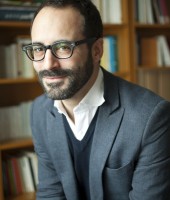Matteo Vincenzo d' Alfonso
Among German philosophers, it was Arthur Schopenhauer who measured himself most openly against French culture, appreciating equally its metaphysical and scientific tradition, as exemplified by Malebranche and Buffon, and its moral-literary leanings. This research intends to examine in particular the role that his youthful and assiduous studies of French moralistic literature – from Montaigne to La Bruyère, La Rochefoucauld and Chamfort, taking in the moral reflections of Helvetius – had on the following three aspects of his philosophical thought: the orientation of the philosopher’s specific contribution to anthropological investigations, the correct definition of the end and method of the philosopher’s activity in the moral area and, lastly, the empirical confirmation of his theory of individual character as the specific difference of each individual. While staying at IAS-Paris I propose to study the French sources frequented by Schopenhauer, in order to relate them to passages of his works and Nachlass in which they either reappear directly, or of which it may be hypothesized that they provided inspiration for his own manner of research and writing. More generally, this research also aims to test, on the basis of the eminent example of a writer such as Schopenhauer, to what extent even those sources that traditional historical writings are reluctant to count as strictly philosophical, are in reality essential for philosophical thought in the strict sense when they make anthropological-moral reflections on an empirical basis.
|
Workshop organized by Matteo V. d'Alfonso (Paris IAS fellow) |
|
|
|
|

